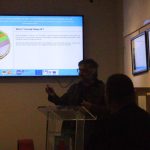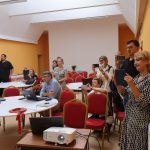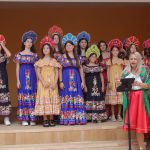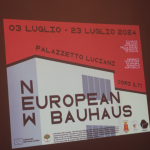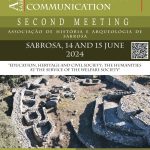Learning Villages “C”: Networks of Towns (Citizens, Equality, Rights and Values Programme) is a project whose main objective is to address the problems of small villages and rural sites in Europe. It is a project of the current CERV, Citizens, Equality, Rights and Values Programmes.
The “Associação de História e Arqueologia de Sabrosa”, aware of the enormous difficulties experienced in the rural environments and villages of the Demarcated Douro Region and Alto Douro Wine Region, promotes, within the framework of Learning Villages “C”: Networks of Towns, a series of cultural, educational and pedagogical activities with groups of children, young people and adults to implement a series of activities around the themes of common interest to be addressed in the context of the objectives or policy priorities of the Citizens, Equality, Rights and Values (CERV) Programme.
Together with the European Commission, our partners and rural communities, we aim to make life in rural areas a little more sustainable, dynamic and interesting.
Municipalities and associations working together on a common theme with a long-term perspective may wish to develop networks of towns to make their cooperation more sustainable. Networking between municipalities on issues of common interest seems to be an important means to enable the exchange of good practices.
Twinning is a strong link connecting municipalities; therefore, the potential of the networks created by a series of town twinning links should be used to develop thematic and lasting cooperation between towns.
The European Commission supports the development of such networks, which are important to ensure structured, intense and multifaceted cooperation, thus helping to maximise the Programme’s impact.
Networks of Towns are expected to:
- Integrate a range of activities around the theme(s) of common interest to be addressed in the context of the Programme’s policy objectives or priorities;
- Mobilise citizens across Europe;
- Deepen and intensify the cooperation of towns and cities and offer them the possibility to debate from a long-term perspective, to develop sustainable networks and to outline their long-term vision for the future of European integration.

